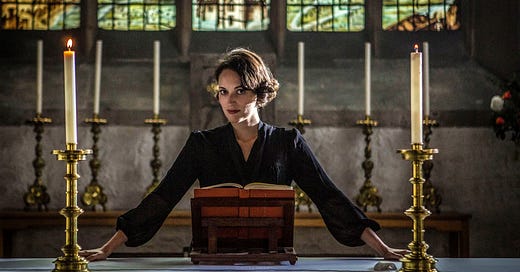I haven’t considered myself Catholic in years. Not since I chose “God and Science” for my required religion class senior year of high school. We read Nietzsche (yeah, the “God is dead” guy) and, like a good teenager, my weekly arguments with my mom centered around religion and God’s existence. She took the devout side while I chose the heathens.
But for 18 years, Catholicism was ubiquitous, piercing every inch of my life and making my world a holy pincushion, whether I recognized it or not. Being the type of Catholic who went to mass twice a week — once during school and once on Sunday with my family — whose family said grace before dinner, religion wasn’t a choice. I was born into it, blessed by an oily sign of the cross on my forehead at five months old.
That sign of the cross saves your soul. Most people think of babies and children as untouched by the pollution of existence, naive beings whose spotless selves are exempt from wrongs. They can barely walk on their own let alone feed themselves, so we cannot blame them. That’s not the Catholic mindset. Before you’re baptized, you’re tainted with original sin — an inherent evil found in all humans. Thanks Adam and Eve. From the moment you take your first breath outside the womb, you are subpar. Baptism saves you only momentarily. As a Catholic, you will spend the rest of your life atoning for your sins, seeking that baptismal cleansing that will get you accepted into eternal life when you die. Your existence on this earth should be spent preening for entrance to heaven.
No wonder guilt slogs along beside me, a heavy, omnipresent companion.
This newsletter is how I’m processing my lapsed Catholicism. To be clear, I don’t hold anything against Catholics. This is not a diatribe against religion or the institution of the Church, which has plenty of issues worth railing against (see: Spotlight). Rather, this ephemeral newsletter is an exploration of my own particular relationship with Catholicism, how I grew up in the faith, and an attempt to grapple with the guilt that still peers over my shoulder even now.
The essential question I’m seeking an answer to: How do you reconcile how you were raised and the person you know yourself to be today when you intentionally severed a pervasive element of that upbringing?





